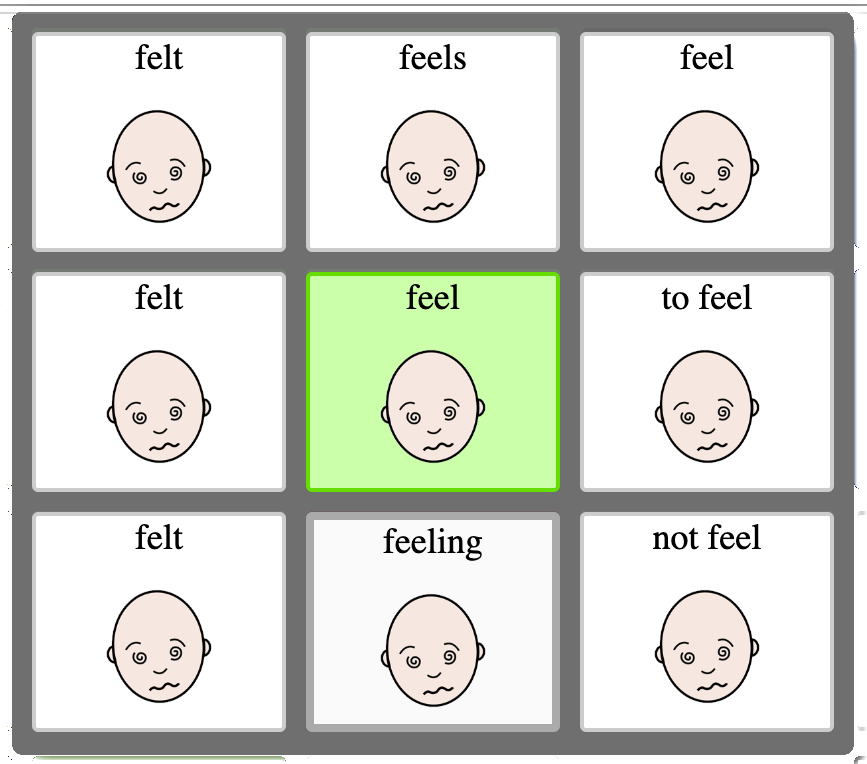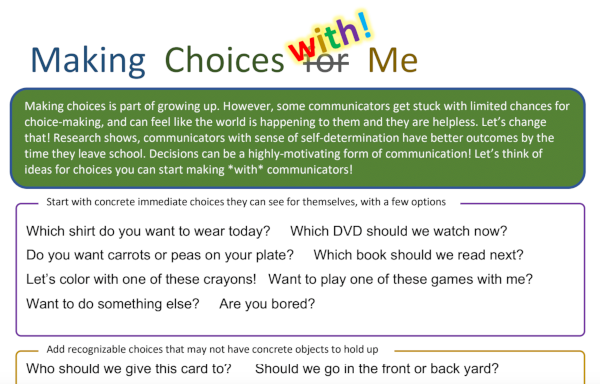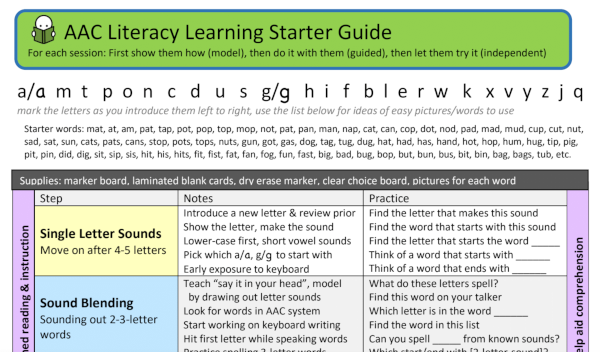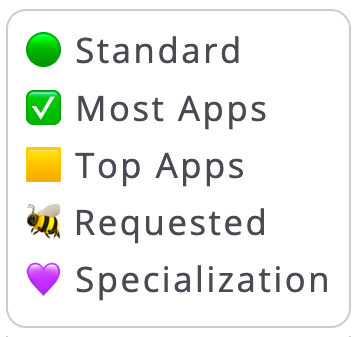Documents & Resources
OpenAAC-sponsored materials
Our main areas of focus at OpenAAC is to improve the lives of AAC users through openness and collaboration. We do this by providing resources and tools that make it easier for AAC support teams to work effectively, and for AAC developers to not have to start from scratch when implementing.
All of our materials and resources are developed with participation from the AAC community, and we are always looking for additional feedback, so please comment on any doc, or hop onto our chat and share any areas where you think things could be improved. This stuff only works if everyone helps where they can!
Community Tools
 Communication Partner Profile (cpp v1.0)
Communication Partner Profile (cpp v1.0)
The CPP is a self-reflection form that can be filled out by any communication partner at any level, with the objective of helping identify areas of improvement in supporting AAC users.
Developer Resources
The Developer Considerations tool consists of a nearly-exhaustive list of features that are implemented or requested to be implemented in user-facing AAC systems, ranked by user expectation of availability.
Specifications

obf is an open, standardized file format for representing a single board or set of boards, enabling users to import and export their personal vocabulary from one AAC system or vendor to another.

obl is an open, standardized logging format used to record AAC user session data. Logging exports an be anonymized if desired, to allow users to share their usage logs with researchers.
AAC “Effort” Score (part of CARE Analysis)
Effort Score is an attempt to quantitatively measure the amount of work needed for a typical AAC user to activate a word or build a sentence in an arbitrary AAC system. This score is a first step in trying to create an objective, measurable system for comparing different AAC vocabularies.
 Language Support, “Word Forms and Inflection Rules” Specification
Language Support, “Word Forms and Inflection Rules” Specification
This specification offers a language-agnostic tool to allow AAC developers to support more advanced language-based features without having to recreate the wheel for themselves. You can see it in action yourself if you like!
 Partner-Assisted
Partner-Assisted Making Choices
Making Choices AAC Literacy
AAC Literacy Interactive Reading
Interactive Reading